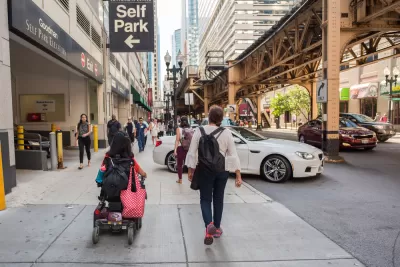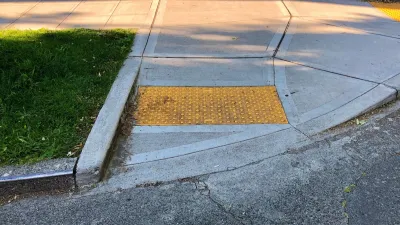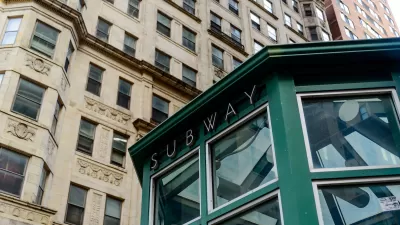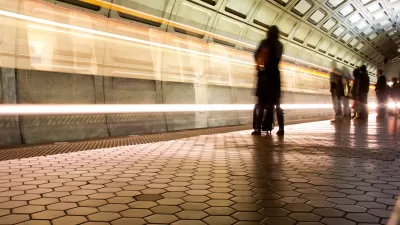Inadequate infrastructure disproportionately harms people with mobility challenges who can't or don't drive, but their needs closely mirror those of all pedestrians.

A study from Disability Rights Washington that interviewed people with mobility challenges "found that respondents 'overwhelmingly' cited 'the poor condition or absence of sidewalks' as the biggest barrier to getting where they needed to go, followed closely by problems with curb cuts, crosswalks and intersections." Kea Wilson writes that the requests made by the study's respondents "closely resemble the demands of sustainable transportation advocates on the whole." These include "[f]requent and reliable fixed-route transit; zoning changes to make a range of accessible housing options abundant in well-connected neighborhoods; and a revamped planning processes to center the needs of non-drivers."
While the cost of poor infrastructure is disproportionately high for people with mobility challenges, "insufficient infrastructure" harms more than just people with disabilities. "Focusing on non-drivers also allows us to advocate for better transportation access for people who may not be disabled, but who would benefit from better transit and active transportation infrastructure," says Anna Zivarts, director of the Disability Mobility Initiative and a lead author of the report. "Engaging deeply with the experiences of people with disabilities like the ones catalogued in this report is a good starting point for agencies who want to do better by all their residents. But the report authors stress that action is what matters."
The report outlines some key recommendations, including more robust pedestrian networks, more accessible and reliable public transit, incentives for accessible housing near transit and dense urban areas, and legal requirements for inclusion and access.
FULL STORY: Why We Can’t Afford to Ignore the Needs of Non-Drivers With Disabilities

Alabama: Trump Terminates Settlements for Black Communities Harmed By Raw Sewage
Trump deemed the landmark civil rights agreement “illegal DEI and environmental justice policy.”

Study: Maui’s Plan to Convert Vacation Rentals to Long-Term Housing Could Cause Nearly $1 Billion Economic Loss
The plan would reduce visitor accommodation by 25% resulting in 1,900 jobs lost.

Planetizen Federal Action Tracker
A weekly monitor of how Trump’s orders and actions are impacting planners and planning in America.

Wind Energy on the Rise Despite Federal Policy Reversal
The Trump administration is revoking federal support for renewable energy, but demand for new projects continues unabated.

Passengers Flock to Caltrain After Electrification
The new electric trains are running faster and more reliably, leading to strong ridership growth on the Bay Area rail system.

Texas Churches Rally Behind ‘Yes in God’s Back Yard’ Legislation
Religious leaders want the state to reduce zoning regulations to streamline leasing church-owned land to housing developers.
Urban Design for Planners 1: Software Tools
This six-course series explores essential urban design concepts using open source software and equips planners with the tools they need to participate fully in the urban design process.
Planning for Universal Design
Learn the tools for implementing Universal Design in planning regulations.
Caltrans
Smith Gee Studio
Institute for Housing and Urban Development Studies (IHS)
City of Grandview
Harvard GSD Executive Education
Toledo-Lucas County Plan Commissions
Salt Lake City
NYU Wagner Graduate School of Public Service





























